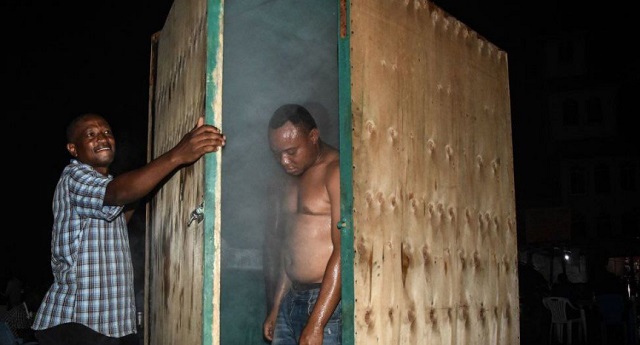
Kampala, Uganda | THE INDEPNDENT | While herbal-based traditional medicines or phytomedicines have for long been used in managing some diseases in the country, the health ministry has cautioned against their use in treatment of COVID-19.
Health Ministry’s Senior Public Relations Officer, Emmanuel Ainebyona says so far, the Ministry and World Health Organization (WHO) have not approved any herbal medicine in the treatment of CCOVID-19.
“We are calling on citizens to pay attention to government-endorsed, scientifically-verified and approved information. The main guidance around Covid-19 is simple and clear: Wear a mask, wash your hands, Avoid crowds, & social distance as much as possible. We are calling on all Ugandans to live by these preventive measures and to help spread the word.” Said Ainebyona
The surge in the COVID-19 cases and deaths in the country has forced some affected persons to turn to all sorts of concoctions for treatment instead of getting to hospitals for management.
The health ministry backed by some of the leading pharmacists in the country urging for caution saying some of the herbs being prescribed may not have any efficacy and that some of them may be poisonous leading to death.
Currently, no herbal remedy has been validated for use to prevent or treat COVID19 globally. Herbal remedies or medicines are naturally occurring, plant-derived substances that are developed mostly through a process with minimal or no respect for good clinical practice (GCP).
The caution comes as Twaweza released a report based on a survey indicating an increase in the number of misconceptions about COVID-19 in the country.
The survey conducted in Kampala between December 2020 and January this year found that close to half of Kampala residents (46%) believe, falsely, that drinking some combination of ginger, lemon, honey and herbs can cure COVID-19.
The survey findings released on Saturday indicated that around one out of three residents in the city believe that taking vitamin supplements (36 per cent) or use of alternative remedies such as steam inhalation (31 per cent) can cure someone of COVID-19.
Twaweza says there is evidence that Kampala residents changed their behaviour around Covid-19 when comparing between December and June 2020. It said the most significant change comes in self-reported mask-wearing: in December 2020, 9 out of 10 Kampala residents (88 per cent) reported wearing a mask when outside the house compared to 7 out of 10 (72 per cent) in June 2020.
Other self-protection measures that Kampala residents reported doing more of in December compared to June are: avoiding public places or gatherings (26 per cent) report doing this in December compared to 13% in June), and using alternative remedies (up to 17 from 6 per cent).
Residents of Kampala also reported staying home except for essential trips much less (45 per cent in June 2020 compared to 28 per cent in December).
Similarly, when asked what they would do if they or a household member contracted Covid-19, residents of Kampala were more likely to say they would: visit a health facility (60 per cent in June, 72 per cent in December); self-quarantine at home (18 per cent in June, 25 per cent in December) and report to a regional health officer (from 0 to 17 per cent).
But the city residents according to the survey said they were much less likely to say they would call the Covid-19 hotline (58 per cent named this as an option in June 2020 and 22 per cent mentioned it in December).
The number of Kampala residents who say that if they or a household member contracted Covid-19, they would self-medicate using herbal remedies and/ or steam inhalation has increased over the course of the pandemic.
“In December 2020 and January 2021, around one out of five residents would self-treat using herbal remedies (13 per cent) or steam inhalation (6 per cent).” Reads part of the survey.
Violet Alinda, Twaweza Uganda Country Lead and Director of Voice and Participation said “As the second wave hits Uganda hard, we hope these data can help inform messaging around Covid-19 to encourage citizens to listen to government guidelines and be wary of misinformation and false cures.”
According to the Ministry of health statistics, Uganda has so far had 75,537 cases of COVID-19 and 781 deaths while cumulative recoveries stood at 50,350.
 The Independent Uganda: You get the Truth we Pay the Price
The Independent Uganda: You get the Truth we Pay the Price



